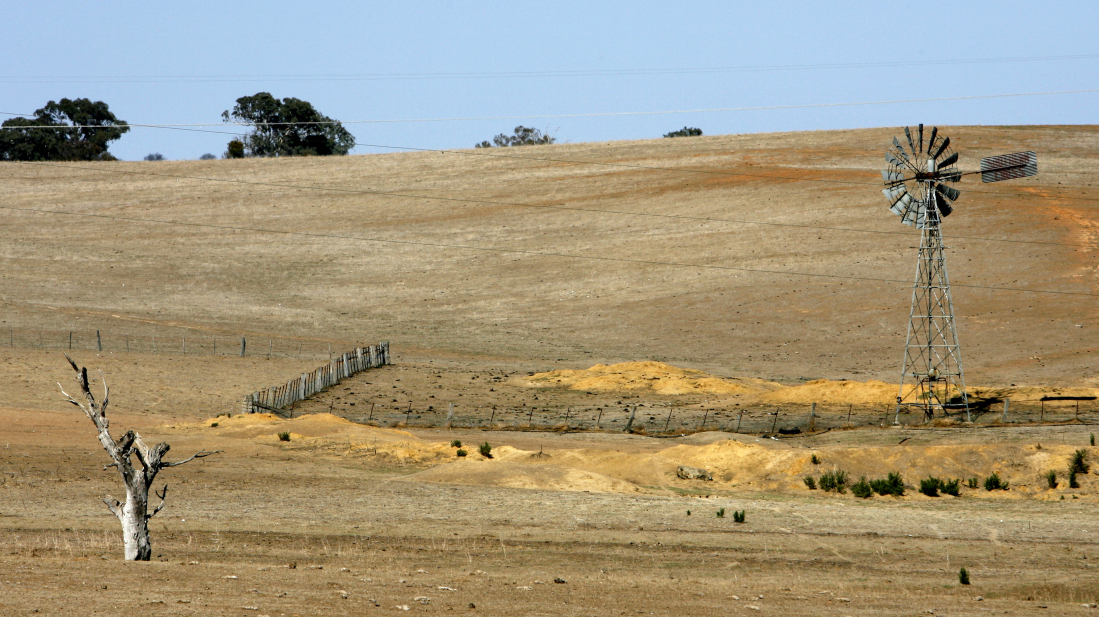Russian intelligence accuses UK, France of plotting to arm Ukraine with nuclear weapons
The Foreign Intelligence Serrvixe of the Russian Federation (SVR) on Tuesday (25 February) accused the United Kingdom and France of actively working t...

Australia will suffer more frequent and extreme climate events, often happening simultaneously, which will strain industry, services and infrastructure, a government report said on Monday, ahead of the announcement of a new emissions target.
Among the conclusions of the most comprehensive assessment of risks to Australia posed by climate change were that heatwaves will become more frequent and deadly, while rising sea levels will put millions at risk and plants and animals will have to move, adapt or die.
Northern parts of the country, remote communities and outer suburbs of major cities will be particularly susceptible, Climate and Energy Minister Chris Bowen said in a statement.
"No Australian community will be immune from climate risks that will be cascading, compounding and concurrent," he said.
"Australians are already living with the consequences of climate change today, but it's clear every degree of warming we prevent now will help future generations avoid the worst impacts in years to come."
Australia aims to cut carbon emissions by 43% by 2030 and reach net-zero emissions by 2050. Bowen said the government would soon announce an "ambitious and achievable" emissions reduction target for 2035.
The previous right-of-centre government was considered by clean energy advocates a global laggard for its emissions policies. Renewable energy projects have faced backlash from communities and conservative politicians and media.
Monday's report said Australia was already 1.2 degrees Celsius warmer than historical levels. It said a 3-degree warming would raise the number of extreme heatwave days to 18 a year from four now and the duration of marine heatwaves to nearly 200 days from 18 now.
The number of deaths from heatwaves in Sydney could increase by 444% in that scenario, it said, while some forests and marine life may perish.
Three degrees of warming would raise sea levels by another 54 centimetres by 2090, allowing saltwater ingress to impact fresh water supply and putting more than 3 million people in coastal communities at high risk of flooding that could occur on more than 200 days each year, up from 15 days a year now.
Health and emergency services would face pressure, rebuilding costs would rise, property values would fall and hotter, drier weather would damage crop yields and stress livestock, the report said.
The government also on Monday released a national adaptation plan that Bowen said would guide Australia's response to the report's findings.
Iran has signed a secret €500 million arms deal with Russia to rebuild air defences, weakened during last year’s war with Israel, the Financial Times has reported. The agreement, signed in December in Moscow, will see Russia deliver 500 Verba launch units and 2,500 9M336 missiles over three years.
A British national was among at least 19 people killed when a passenger bus plunged off a mountain highway into the Trishuli river in Nepal before dawn on Monday (23 February), authorities said. A New Zealander and a Chinese national were among those injured.
Seven people were killed after gunmen ambushed a police patrol in Kohat, a district in Pakistan’s north-west near the Afghan border, on Tuesday, in an attack that comes amid rising militant violence and heightened tensions between Pakistan and Afghanistan.
Four years after Russia launched its full-scale invasion of Ukraine on 24 February 2022, the war is no longer defined by shock but by scale.
The Taliban in Kabul has rejected Russian claims that more than 23,000 militants from around 20 international terror groups are currently operating within Afghanistan.
The administration of U.S. President Donald Trump on Thursday (12 February) announced the repeal of a scientific finding that greenhouse gas emissions endanger human health, and eliminated federal tailpipe emissions standards for cars and trucks.
Tropical Cyclone Gezani has killed at least 31 people and left four others missing after tearing through eastern Madagascar, the government said on Wednesday, with the island nation’s second-largest city bearing the brunt of the destruction.
Rivers and reservoirs across Spain and Portugal were on the verge of overflowing on Wednesday as a new weather front pounded the Iberian peninsula, compounding damage from last week's Storm Kristin.
Morocco has evacuated more than 100,000 people from four provinces after heavy rainfall triggered flash floods across several northern regions, the Interior Ministry said on Wednesday.
Greenland registered its warmest January on record, sharpening concerns over how fast-rising Arctic temperatures are reshaping core parts of the island’s economy.
You can download the AnewZ application from Play Store and the App Store.

What is your opinion on this topic?
Leave the first comment